IEA Report Gas 2021: Analysis and Forecast to 2024 was released in Beijing on July 8th.
This conference was jointly hosted by the International Energy Agency (IEA), the Institute of Energy of Peking University (IEPKU), the Energy Cooperation Program (ECP), and the Shanghai Petroleum and Natural Gas Exchange (SHPGX). More than 100 guests from the IEA, the National Energy Administration (NEA), the U.S. Embassy in China, some embassies and consulates in China such as the U.K. and France, as well as Chinese and foreign energy companies and research institutions attended.The accumulated number of online participants is 50,000 within two-hour global simultaneous conference.
The meeting was moderated by An Fengquan, Senior advisor, IEA.

Wang Jing, Deputy Director of the Oil and Natural Gas Division of the National Energy Administration, and Peter Fraser, Head of Gas, Coal and Power Markets Division, opened the meeting with leading remarks. They affirmed that natural gas would play an essential role by 2024 in the context of a global energy shift to low carbon and zero-carbon development.
Global natural gas demand will maintain a low speed and steady growth. The low-carbon innovation and development of natural gas will still be expected to usher in development opportunities.
Wang Jing, Deputy Director of the Oil and Natural Gas Division of the National Energy Administration, pointed out that although there are still some debates on how to achieve the double carbon target, China to achieve the double carbon target, the first step is clear-that is-to speed up the revolution in energy production and consumption. This is an important measure and driving force to achieve carbon peak and carbon emission reduction. In the process of global carbon emission reduction, natural gas has a crucial part to play in the green and low-carbon energy transformation of the world and China, whether it is the substitution of low-carbon natural gas for high-carbon energy or the construction of energy storage gas electricity and other flexible regulation power supply. In the future, China will continue to adhere to the coordinated development of natural gas production, storage and marketing, vigorously enhance exploration and development efforts, accelerate infrastructure layout, speed up the construction of gas storage facilities, and promote market-oriented reform. Besides this, China will strive to build a safe, reliable, flexible and resilient natural gas industry and supply chain system. At the same time, the utilization structure of natural gas will be optimized. The coordinated and integrated development of gas and electricity will be accelerated. The emergency protection and supply capacity of natural gas will be improved. More powerful measures will be taken to improve the elasticity and toughness of the whole natural gas, so as to cope with greater opportunities and challenges, continuously promoting the high-quality development of the industry.

Jean-Baptiste Dubreuil and Akos Losz, two natural gas experts from the IEA, have analyzed and interpreted the report. The report has pointed out that global gas demand is expected to grow to 4.3 trillion cubic meters by 2024, increasing to 350 billion cubic meters from 2020. Emerging Asian economies such as China are the main drivers of future growth in global gas demand.
Following the IEA keynote report, Chinese researchers and well-known industry experts shared their insights on the role of natural gas in the future of carbon neutrality in China and globally.
Yang Lei, deputy director of the IEPKU, said that replacing coal with gas was an effective way for China to improve air quality, reduce greenhouse gas emissions and achieve green and low-carbon development. Encouraging the integrated development of natural gas and renewable energy can complement each other's strengths and jointly promote a clean, low-carbon, safe and efficient energy supply system.
Chai Qimin, Director for Strategy and Planning, National Center for Climate Change Strategy and International Cooperation (NCSC) in the Ministry of Ecological Environment, argued that in the next 15 years, China's natural gas industry was still likely to have a good development prospect, especially in the chemical industry and power generation.
Speakers from well-known energy companies in the natural gas industry also shared some of their innovations and initiatives in promoting carbon neutrality and the energy transition.
Andrew Walker, the Vice President for Strategy and Communication for Cheniere, shared his companies' efforts and innovations in achieving carbon neutrality in the global response to climate change. Chenier supplied carbon-neutral US LNG to the European market in April. In particular, Mr. Walker shared his experience with Cargo Emissions Tag (C.E.) and Life Cycle Assessment (LCA) models to calculate GHG emissions data for each link in the LNG value chain, from the wellhead to the delivery site.
Wen Feng, Director & GM, Shell Energy (China), in addition to her strategic direction of increasing global investment in natural gas, also shared some of Shell's new trends and experience in the field of carbon capture, utilization and storage and hydrogen energy.
Han Jinli, the chief engineer of Beijing Gas, also shared that in addition to continuing to pay attention to energy security and energy digitization, because methane is better energy than carbon dioxide, and the greenhouse gas effect is even higher, Beijing Gas Group will create methane greenhouse gas emissions as one of the key concerns of the group, so as to hope that methane is no longer a stumbling block to the low carbon development of natural gas.
Dr Zhu Xingshan, Distinguished Research Fellow in IEPKU, added that the role of natural gas in low carbon was beyond doubt. Natural gas is renewable energy and supports the modern, clean energy system with new energy as the main body. In the long term, it depends on natural gas. One is how competitive is natural gas plus CCS, and the other is zero-carbon hydrogen production. Dr. Zhu also suggested that there was no problem with China's liquefied capacity by 2024, but later there might be a problem requiring the buyer to decide in advance. Therefore, Dr. Zhu further suggested that decision-makers on the buyer side might want to take a long-term view and start negotiations on long-term contracts.
Yang Yunming, Co-Chair of the ECP Board of Directors, and Vice President, Commercial & Government Affairs of ConocoPhillips China Inc., concluded by pointing out that natural gas will continue to play an important role in the world energy and China's energy structure. ECP and the natural gas production and trading companies in the ECP membership are pleased to continue to contribute to the Chinese energy market, providing stable and affordable energy to the global natural gas market from the U.S. market and other markets around the world, and supporting our Chinese partners and customers in achieving the country's carbon-neutral goals early on.
This conference is a collaboration between ECP, the IEA and IEPKU. This is the third event in the International Energy Cooperation Program (iECP) series after the launches of IEA Oil Market Report 2021 and Net Zero by 2050: A Roadmap for the Global Energy Sector. ECP will continue to provide an effective platform of innovation cooperation for all relevant stakeholders in the international energy sector. ECP has started to arrange a series of provincial investigations and industry forums on carbon capture, utilization and storage, energy storage safety standards, hydrogen energy and other topics in the second half of this year. If you are interested, please get in touch with us.

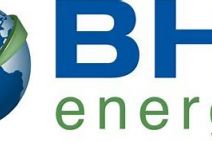
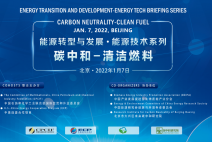
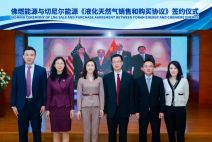

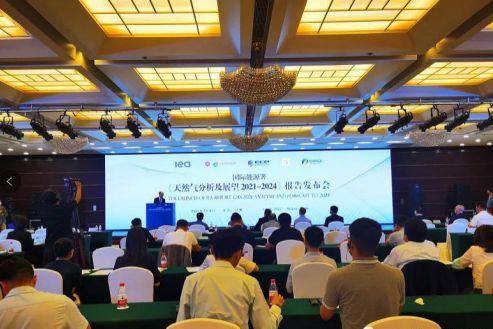
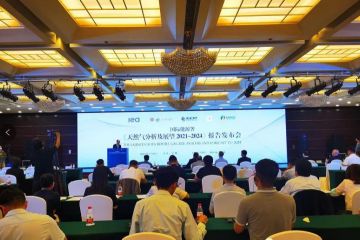
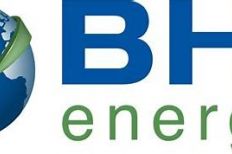
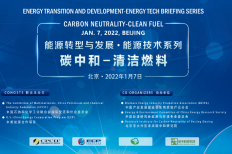
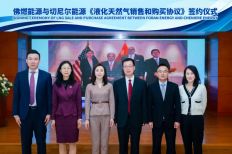

 京公网安备 11010502036951号
京公网安备 11010502036951号